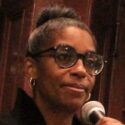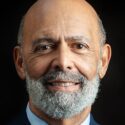 A new study by researchers at American University in Washington, D.C., and Brigham Young University in Provo, Utah, examines what happened in three predominantly Black neighborhoods following the U.S. economic recession that occurred between 2007 and 2009. The neighborhoods in the study were Bronzeville in Chicago, Harlem in New York, and the Shaw/U Street neighborhood in Washington, D.C.
A new study by researchers at American University in Washington, D.C., and Brigham Young University in Provo, Utah, examines what happened in three predominantly Black neighborhoods following the U.S. economic recession that occurred between 2007 and 2009. The neighborhoods in the study were Bronzeville in Chicago, Harlem in New York, and the Shaw/U Street neighborhood in Washington, D.C.
The authors found that Harlem and Shaw/U Street neighborhoods experienced gentrification and became trendy, mixed-race communities. But in Bronzeville, property values declined and the population became increasingly Black and low-income. Differences occurred, according to the authors, due to citywide employment rates, housing market conditions, and the willingness of higher income people of all races to make homes in these neighborhoods.
The article, “The U.S. Great Recession: Exploring its Association With Black Neighborhood Rise, Decline and Recovery,” was published on the website of the journal Urban Geography. It may be accessed here.










